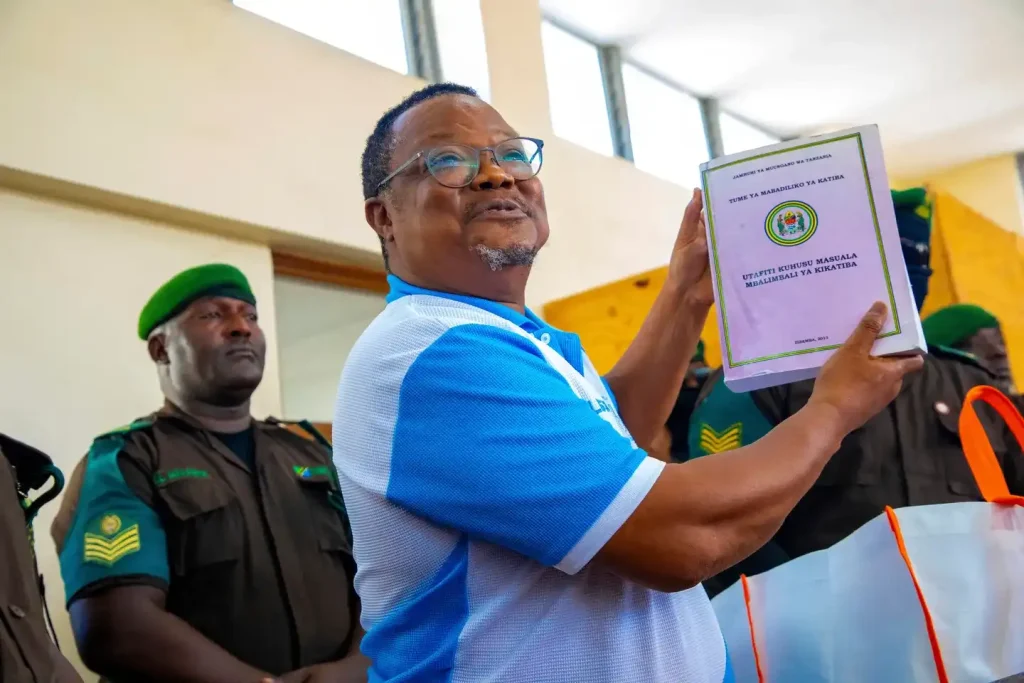In Dar es Salaam, Tanzania’s opposition heavyweight Tundu Lissu appeared in court on Monday, facing serious treason allegations just weeks before the country’s pivotal general elections.
Lissu, who led the CHADEMA party to a strong showing in the 2020 presidential race, finds himself at the center of a legal storm that threatens to overshadow the upcoming polls.
Prosecutors accuse Lissu of inciting public unrest through a public address that allegedly urged citizens to interfere with the electoral process scheduled for later this month.
Arrested back in April, the charges have drawn sharp criticism from supporters who view them as an attempt to silence dissent.
Defiant Stance and Political Backdrop
Lissu has firmly rejected the accusations, with his legal team labeling the proceedings as a targeted effort to undermine political rivals.
The CHADEMA leader, known for his resilience after surviving a near-fatal 2017 shooting attack, in which assailants fired 16 rounds at him remains unbowed. No arrests have followed in that unresolved case, fueling ongoing suspicions of foul play.
In a pre-trial message, CHADEMA described their chairman as resolute and prepared for what could be a lengthy courtroom battle, with initial witness statements set to unfold on the trial’s opening day.
Barriers to Participation and Court Tensions
The electoral body excluded CHADEMA from the race in April, citing the party’s refusal to endorse a required behavioral agreement.
This decision, coupled with the disqualification of another major opposition contender, has cleared the path for President Samia Suluhu Hassan of the long-dominant Chama Cha Mapinduzi (CCM) party, in power since Tanzania’s 1961 independence.
Lissu had previously threatened to abstain from the October 29 ballot unless sweeping changes addressed what he called a system rigged in favor of the ruling CCM.
As proceedings kicked off, reports emerged of scuffles outside the venue, where authorities allegedly prevented some of Lissu’s backers from accessing the hearing, according to one of his attorneys.
To protect informant anonymity, officials have prohibited real-time media broadcasts from inside the courtroom.
Spotlight on Human Rights Under Hassan
Lissu’s jailing, alongside claims of enforced disappearances targeting regime skeptics over the past year, has intensified global scrutiny of Hassan’s governance.
Since assuming office in 2021 following John Magufuli’s sudden passing, she earned praise for rolling back some of the intense crackdowns on activists and press freedoms that defined her predecessor’s era.
Yet, advocacy groups have voiced growing alarm over detentions and kidnappings of dissidents, prompting accusations of backsliding.
Hassan has publicly affirmed her administration’s dedication to civil liberties and launched probes into abduction allegations last year, though results remain undisclosed.
Implications for Tanzania’s Democratic Path
With minor-party hopefuls as Hassan’s sole challengers, the trial amplifies fears of a lopsided electoral field.
As Tanzania approaches this critical juncture, Lissu’s fate could signal the trajectory of political openness in the East African nation, where calls for reform echo amid longstanding power imbalances.




















